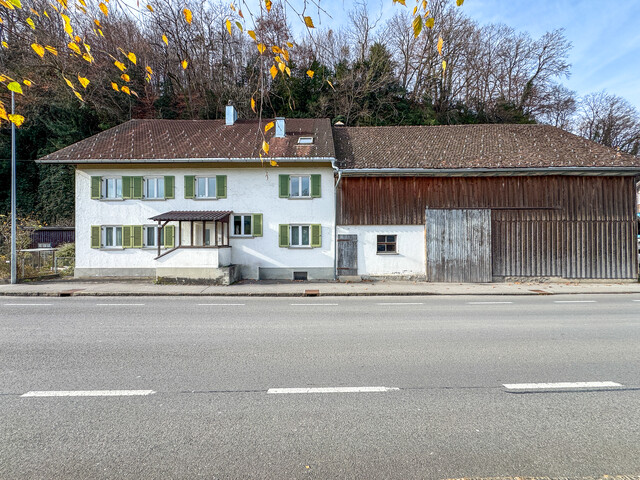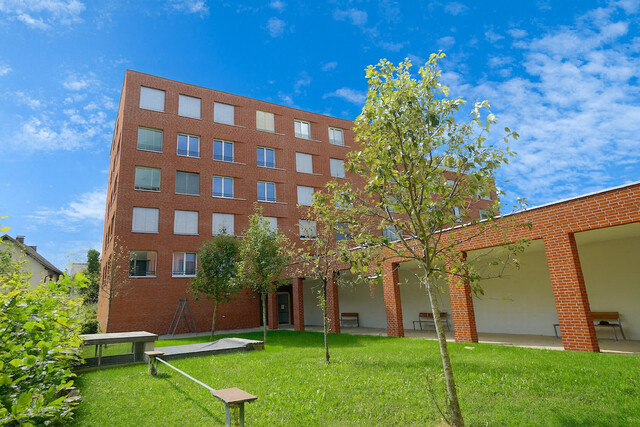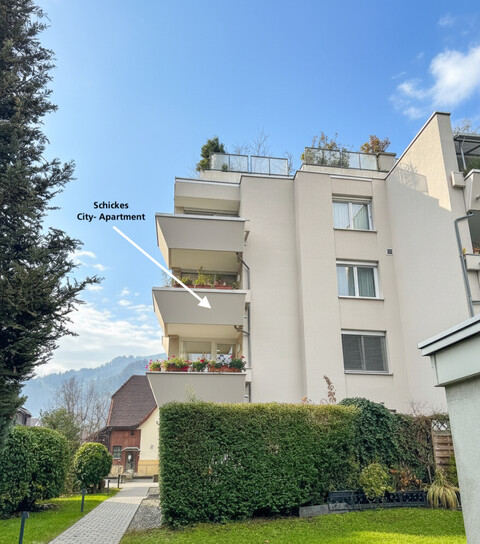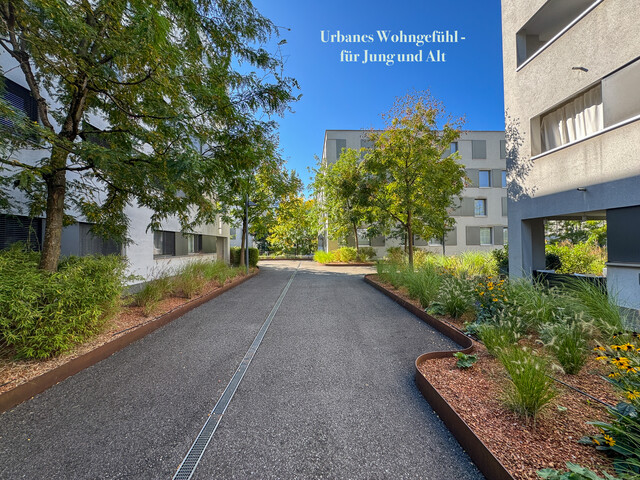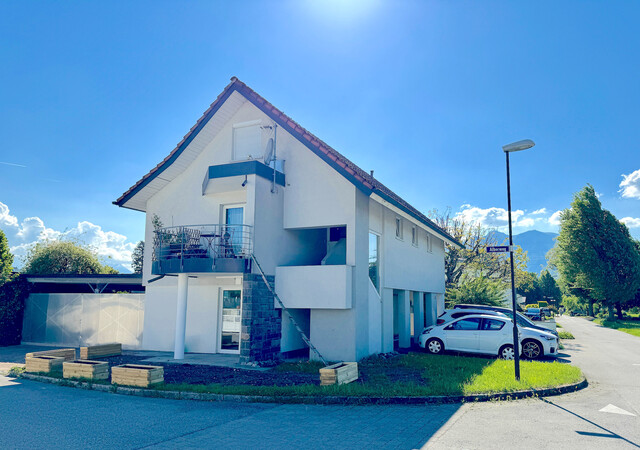Austria's Migrant Share Rises to Over 27 Percent

According to Statistics Austria, the Austrian population continues to grow only thanks to migration. In 2024, more than a quarter of the population had a migration background (first and second generation), and since 2015, the proportion of migrants has increased by around 38 percent. In view of negative birth balances, the population would shrink in the long term to the level of the 1950s without immigration, according to the data presented on Wednesday.
Austria's population would shrink significantly without immigration
The Statistical Yearbook Migration & Integration 2025 was presented at the Chancellery by Integration Minister Claudia Plakolm (ÖVP) and Stephan Marik-Lebeck from Statistics Austria. On average in 2024, around 2.51 million people with a migration background lived in Austria. This includes people of the "first generation" (born abroad) as well as those of the "second generation" (born in Austria, both parents born abroad). Thus, the proportion of people with a migration background in 2024 was 27.8 percent of the total population. Compared to 2015 (1.81 million), this means an increase of about 696,100 people or 38.4 percent.
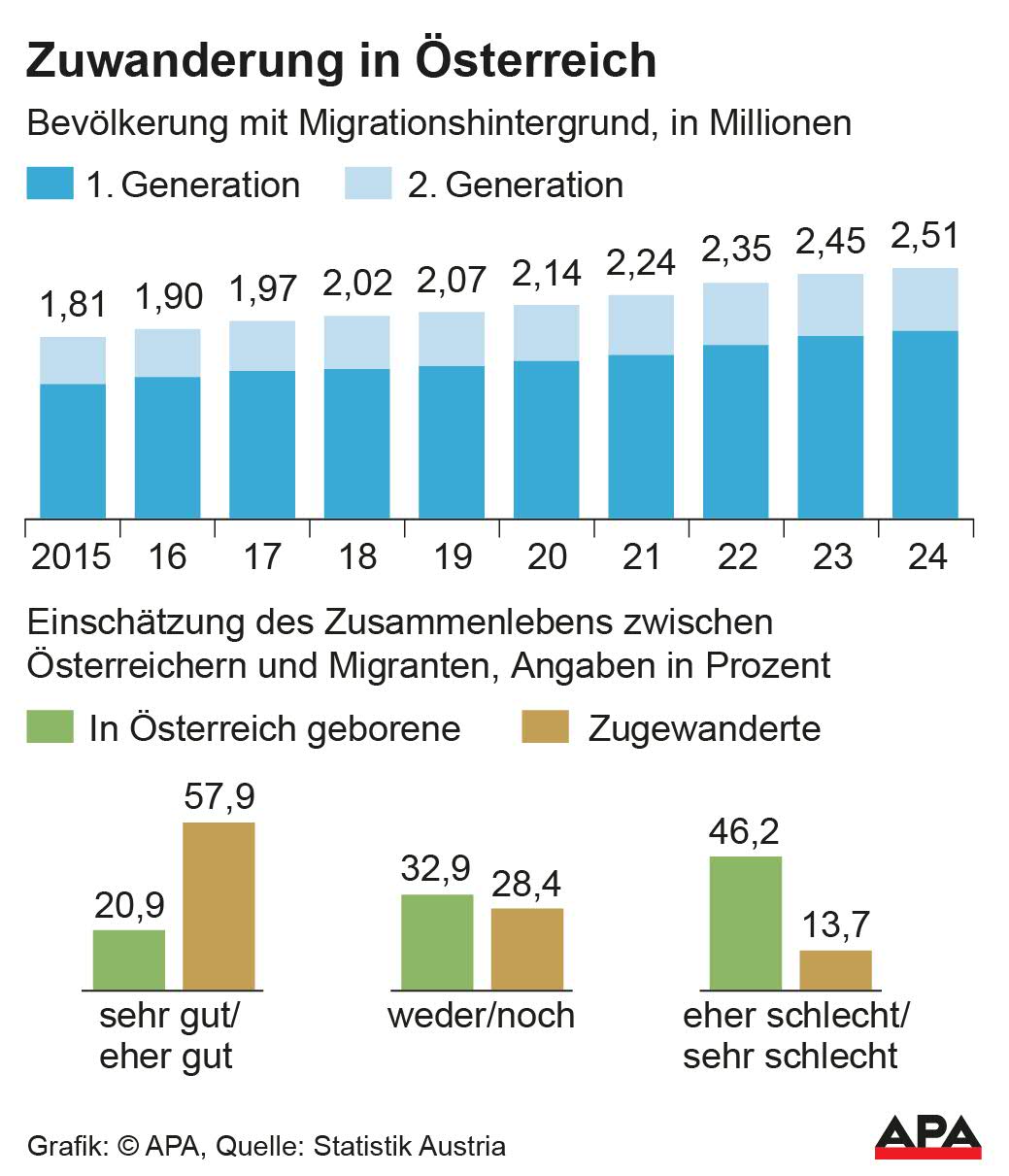
"Migration is a central point for population development in Austria - it has been growing exclusively through migration for many years," said Marik-Lebeck during the presentation of the report. Currently, there are "slightly more deaths than births in Austria, which means that immigration is a central point for Austria's development."
He also looked to the future: Including expected migration movements, Marik-Lebeck expects the ten-million-inhabitant mark to be exceeded in 2069, and in 2080 Statistics Austria expects a population of 10.2 million (+11 percent compared to 2024). Without migration, the population would shrink significantly - to 6.9 million (-24 percent compared to 2024), which would bring it back to the level of 1950.
Those born in Austria view coexistence more critically
The yearbook also surveyed the assessment of coexistence. It shows that criticism among those born in Austria has grown significantly since 2022: While only 25.1 percent rated this point as "rather bad/very bad" back then, by 2025, 46.2 percent viewed it so critically. Only 20.9 percent recently rated coexistence as "very good/rather good".
Immigrants have a significantly better view of the interaction between Austrians and migrants. 57.9 percent see it as "very good" or "rather good", only 13.7 percent as "rather bad/very bad".
Sense of belonging to Austria stronger than to country of origin
As part of the Migration Survey 2025, the sense of belonging of immigrants was also surveyed. More than three-quarters (75.7 percent) of respondents feel a sense of belonging to Austria. The bond is particularly strong among immigrants from Syria (83.6 percent), Bosnia and Herzegovina (79.8), and Somalia (78.3). The lowest sense of belonging to Austria is found among those born in Ukraine (64.7 percent).
Almost half (46.6 percent) of those born abroad still feel connected to their country of origin. The proportion is particularly low among those born in Afghanistan (37.2 percent) and the Russian Federation (32).
Plakolm Demands Willingness to Integrate
Plakolm said that it was "at first glance a very good result." "But it takes more than just feeling like you belong. It requires making an effort. This means learning the language, taking care of the job, supporting the family independently, adhering to values" - and not building parallel societies. "Those who want to remain distant permanently and live in parallel societies cannot be part of society," the minister once again demanded a willingness to integrate.
Integration must succeed, "otherwise support among the population will dwindle," she said regarding the critical view of those born in Austria on coexistence. Plakolm also referred to the steps taken or planned by the government, such as value courses and the possibility of sanctions for not meeting corresponding integration goals.
Number of Asylum Applications Decreased
The number of asylum applications has significantly decreased from the high level of 2022 - from 112,272 to 25,360 in 2024. Compared to previous years, the rate is still higher: from 2018 to 2019, there were between 12,886 and 14,775 applications. Minister Plakolm expressed her satisfaction with the decrease, noting that the trend would continue this year. "This development also gives us the urgently needed breathing space so that integration can succeed," she said.
Germans and Romanians Largest Immigration Groups
Looking at the group of people with non-Austrian citizenship (1.85 million in January 2025), the largest group comes from Germany (239,500), followed by Romanian (155,700), Turkish (124,800), and Serbian (122,500) citizens. Since the beginning of 2020, the largest increases in absolute numbers have been among people with Ukrainian (+76,300), Syrian (+53,300), German (+39,500), Romanian (+32,300), and Croatian citizenship (+25,800).
The use of language in different situations was also surveyed. 45.1 percent of immigrants reported communicating predominantly or exclusively in their native language at home, while 16.4 percent did so exclusively or predominantly in German. Communication with friends takes place exclusively or predominantly in German for 30 percent, while 48.7 percent speak German in combination with another language.
Sharp criticism came from the FPÖ. "The integration report presented today by ÖVP Integration Minister Plakolm is nothing more than a documented admission of guilt for the failed migration policy - and in particular the failure of the ÖVP," said security spokesman Gernot Darmann in a statement. "The obvious grievances that have arisen from years of uncontrolled mass and knife migration are not being eliminated by the losing government, and above all by the ÖVP, but are merely being managed." However, Austrians do not expect and deserve a statistical show, but an "immediate change of course." The ÖVP is not part of the solution, "but the actual problem": "Those who allow hundreds of thousands of people into the country, portray their integration as inevitable, and refuse repatriations should not be surprised if the mood of the population turns against them," said the FPÖ representative.
(APA/Red)
This article has been automatically translated, read the original article here.
Du hast einen Hinweis für uns? Oder einen Insider-Tipp, was bei dir in der Gegend gerade passiert? Dann melde dich bei uns, damit wir darüber berichten können.
Wir gehen allen Hinweisen nach, die wir erhalten. Und damit wir schon einen Vorgeschmack und einen guten Überblick bekommen, freuen wir uns über Fotos, Videos oder Texte. Einfach das Formular unten ausfüllen und schon landet dein Tipp bei uns in der Redaktion.
Alternativ kannst du uns direkt über WhatsApp kontaktieren: Zum WhatsApp Chat
Herzlichen Dank für deine Zusendung.




